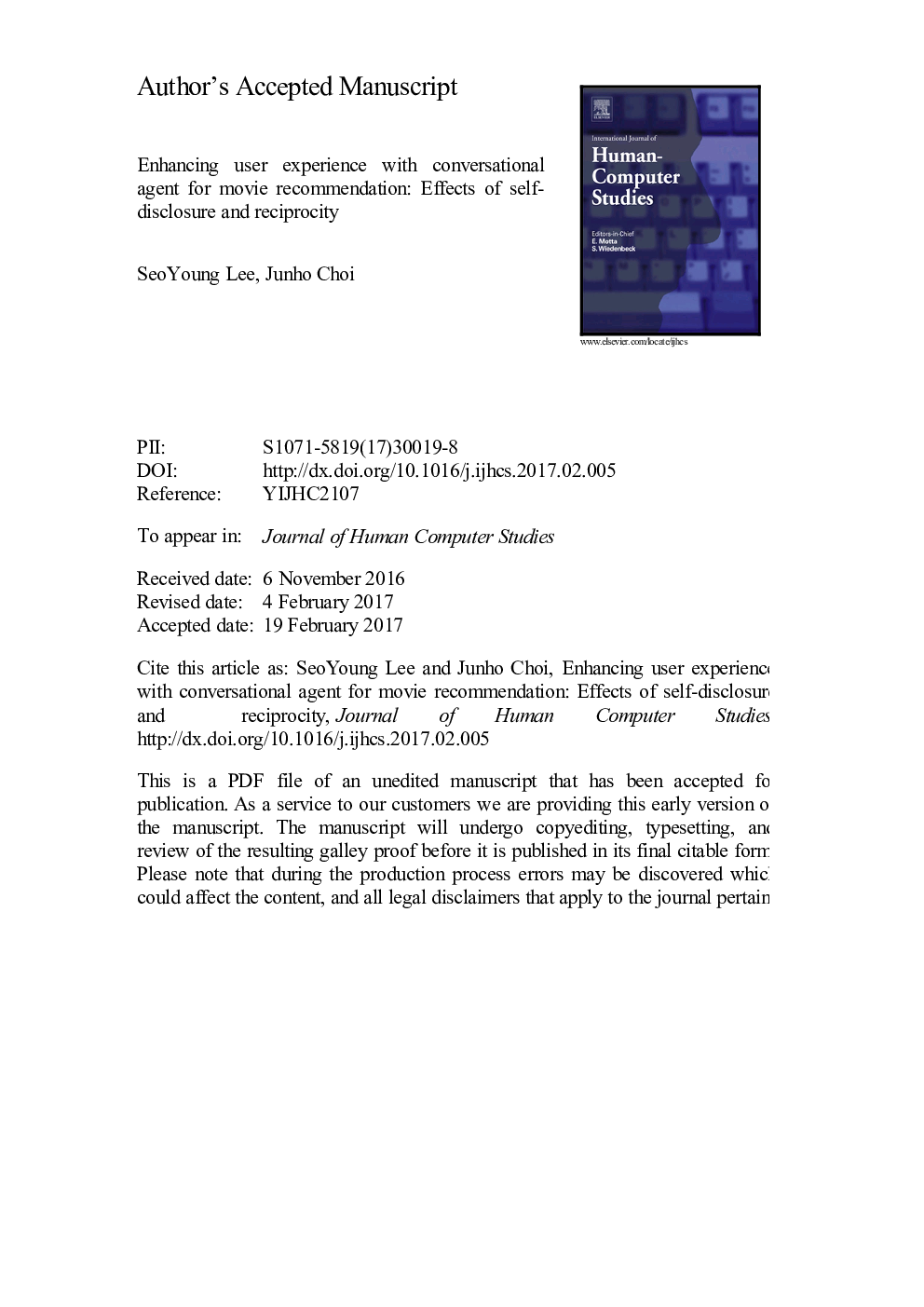| Article ID | Journal | Published Year | Pages | File Type |
|---|---|---|---|---|
| 4945801 | International Journal of Human-Computer Studies | 2017 | 37 Pages |
Abstract
This study investigates how user satisfaction and intention to use for an interactive movie recommendation system is determined by communication variables and relationship between conversational agent and user. By adopting the Computers-Are-Social-Actors (CASA) paradigm and uncertainty reduction theory, this study examines the influence of self-disclosure and reciprocity as key communication variables on user satisfaction. A two-way ANOVA test was conducted to analyze the effects of self-disclosure and reciprocity on user satisfaction with a conversational agent. The interactional effect of self-disclosure and reciprocity on user satisfaction was not significant, but the main effects proved to be both significant. PLS analysis results showed that perceived trust and interactional enjoyment are significant mediators in the relationship between communication variables and user satisfaction. In addition, reciprocity is a stronger variable than self-disclosure in predicting relationship building between an agent and a user. Finally, user satisfaction is an influential factor of intention to use. These findings have implications from both practical and theoretical perspective.
Keywords
Related Topics
Physical Sciences and Engineering
Computer Science
Artificial Intelligence
Authors
SeoYoung Lee, Junho Choi,
